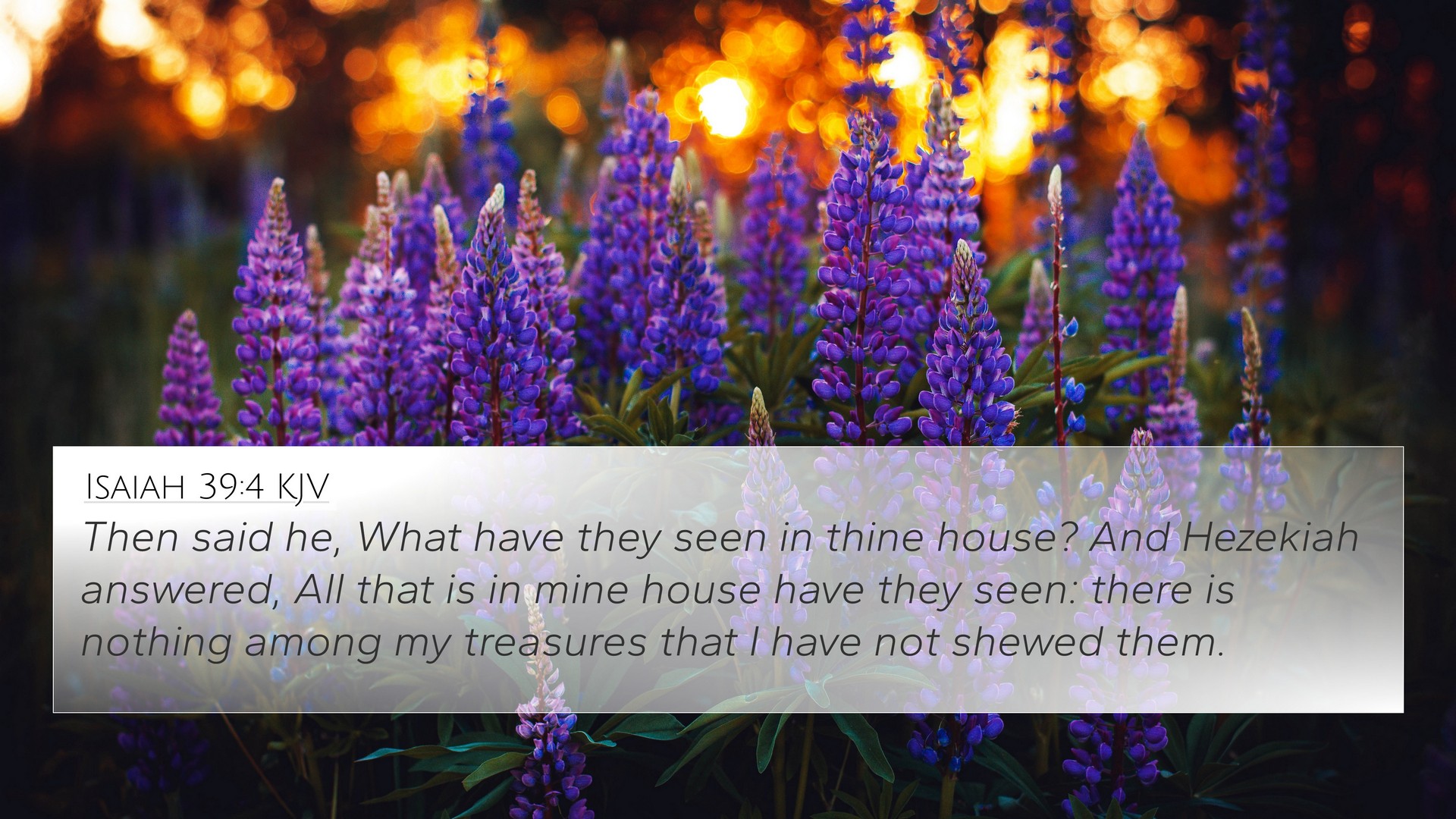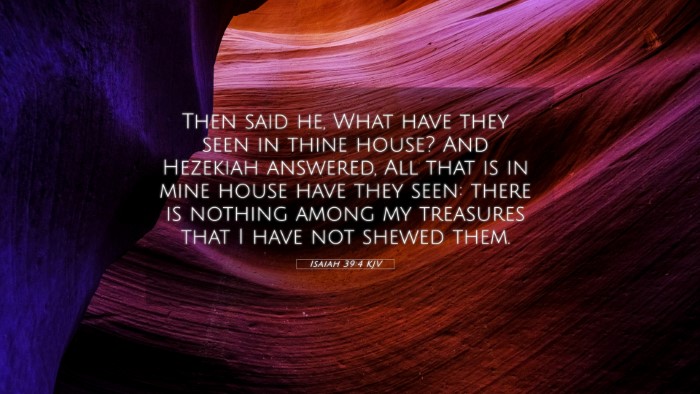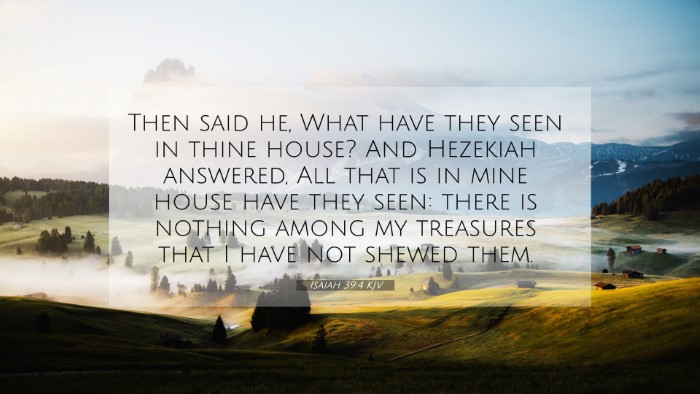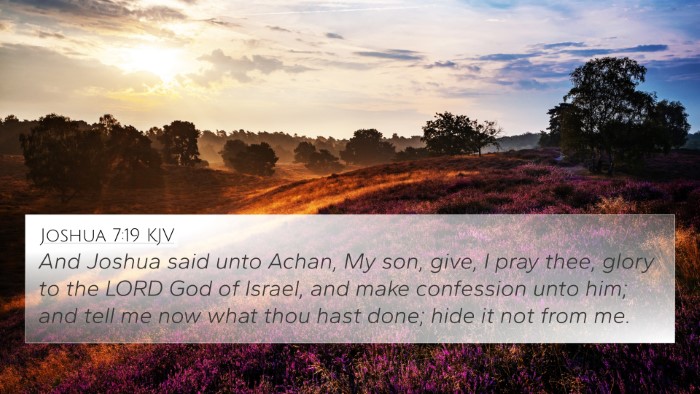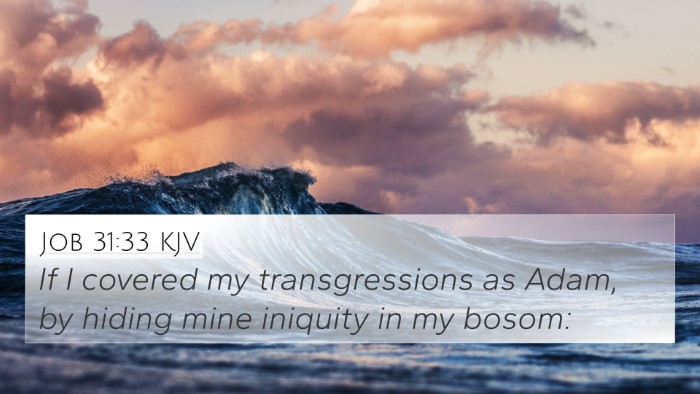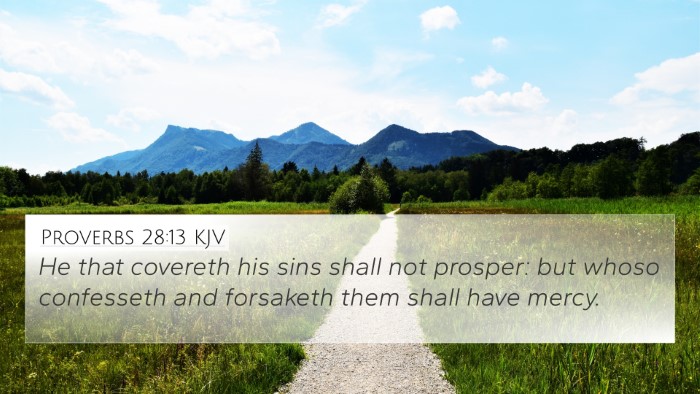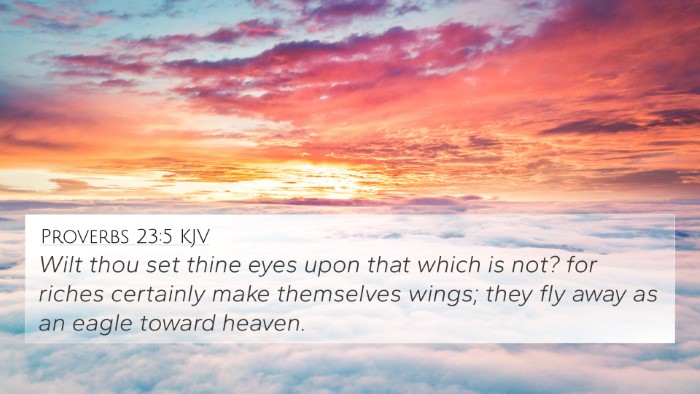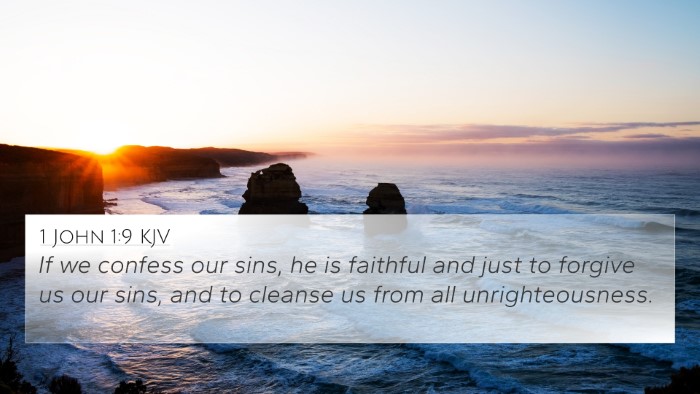Understanding Isaiah 39:4
The verse Isaiah 39:4 states:
"Then said Isaiah to Hezekiah, Hear the word of the LORD of hosts:."
This passage presents a dialogue between the prophet Isaiah and King Hezekiah, capturing a pivotal moment in the narrative of Judah’s history. The intersection of political intrigue and divine revelation forms a rich tapestry of theological and moral lessons.
Contextual Overview
- Isaiah prophesies during the reign of Hezekiah, a king noted for his faithfulness to God.
- This event occurs after Hezekiah’s miraculous healing and the defeat of the Assyrian army.
- Hezekiah’s pride and subsequent boastfulness draw the scrutiny of God through Isaiah.
Commentary Insights
Insights from respected public domain commentators reveal a layered meaning behind this verse:
-
Matthew Henry:
Henry emphasizes the importance of Hezekiah's response to divine revelation and the danger of pride. This moment serves as a warning about the consequences of self-exaltation, urging believers to remain humble.
-
Albert Barnes:
Barnes draws attention to the immediate context, where Hezekiah’s actions directly follow the visit from Babylonian envoys. He sees this as a critical moment of temptation and pride that ultimately leads to Judah’s future captivity.
-
Adam Clarke:
Clarke discusses the moral implications, relating Hezekiah’s story to the broader themes of trust in God versus reliance on human power. This highlights the need for spiritual vigilance in times of blessing.
Thematic Connections
Isaiah 39:4 invites reflection on broader biblical themes:
- Divine Communication: This verse illustrates how God communicates His will through prophets, an essential theme throughout Scripture.
- Consequences of Pride: Hezekiah's story becomes a cautionary tale about the perils of pride, reflected in other biblical accounts (e.g., Proverbs 16:18).
- Trust in God: The emphasis on reliance upon divine guidance over human wisdom resonates with many biblical passages (e.g., Psalm 37:5).
Cross-References for Isaiah 39:4
To enrich understanding, consider these cross-references that relate to Isaiah 39:4:
- 2 Kings 20:12-19 - Discusses the same event involving Babylonian emissaries.
- Isaiah 38:5 - Related to Hezekiah’s healing and his response to God's mercy.
- Isaiah 45:4 - The theme of God’s sovereignty in using even foreign nations.
- Proverbs 16:18 - Pride goes before destruction; a reminder of the dangers of self-exaltation.
- Jeremiah 29:11 - A verse reflecting God's plans for prosperity, contrasting Hezekiah’s short-sightedness.
- Matthew 23:12 - Jesus’ teaching on humility resonates with the warning given to Hezekiah.
- 1 Peter 5:6-7 - Encouragement to humble oneself before God, aligning with the lesson of humility in this context.
Applying the Lessons
This narrative serves as a profound reminder of the relationship between divine revelation and human response. Believers are encouraged to:
- Remain Humble: Recognize the source of blessings and achievements, attributing them to God rather than oneself.
- Seek God’s Will: In moments of triumph, always inquire of the Lord to navigate through potential pitfalls of pride.
- Engage in Inter-Biblical Dialogues: Understanding how Hezekiah’s story interacts with other biblical texts enhances comprehension and application of its lessons.
Conclusion
Isaiah 39:4 encapsulates crucial themes of humility, divine communication, and the consequences of pride in our relationship with God. The comments from various scholars further illuminate these aspects, allowing readers to draw parallels across scripture.
Further Study Resources
For those interested in a deeper understanding, consider utilizing tools for Bible cross-referencing such as:
- Bible concordances
- Bible cross-reference guides
- Comprehensive Bible reference resources
By engaging with these tools, one may better identify connections between Bible verses and enhance their scriptural understanding.
